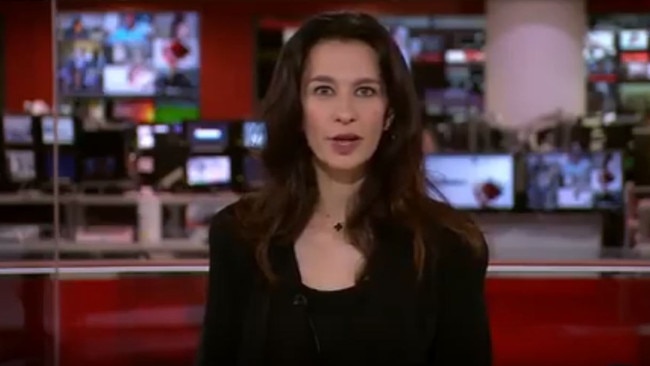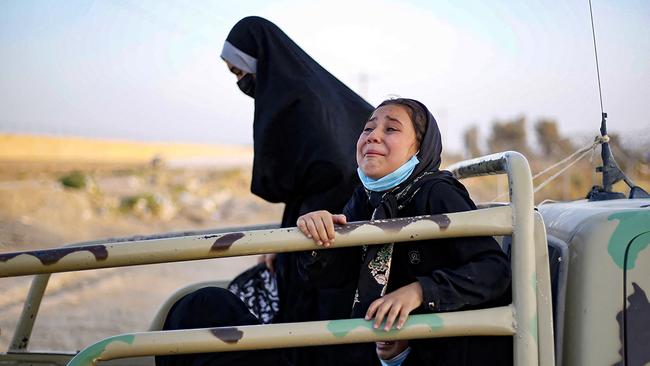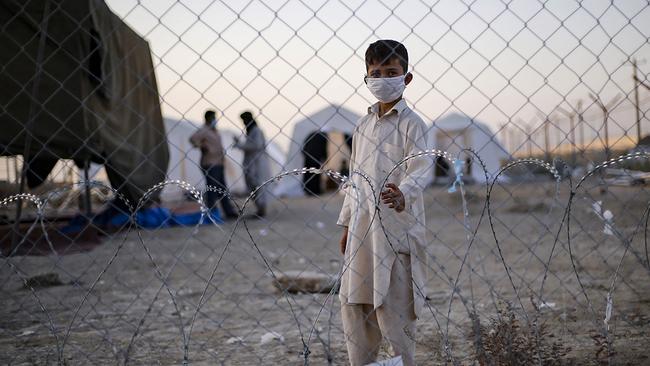Australian journalist Yalda Hakim reveals the conversation she had with Taliban while live on-air for the BBC
An Australian journalist has revealed the shocking conversation she had with the Taliban, after they called on her while live on-air with the BBC.
World
Don't miss out on the headlines from World. Followed categories will be added to My News.
A BBC journalist who grew up in Australia has revealed a shocking conversation she had with a Taliban leader, after they called her live on-air.
Yalda Hakim, who was born in Afghanistan but moved to Sydney’s west in 1986, was delivering an interview earlier this week when the unexpected phone call arrived.
However, she said despite the notorious group pushing a more “modern approach” to the public, its assurances of “no revenge on anyone” and its treatment towards women are being questioned.
Ms Hakim said her conversation with the Taliban frontline commander was in stark contrast to the image being pushed during the press conferences.
“It was very similar to what I have heard the Taliban say before,” Ms Hakim said, who appeared on Q&A’s Afghanistan special.
“They’ve said it to me on-air, they’ve said it to me face-to-face when I travelled to Doha that women would have their rights, there wouldn’t be any revenge attacks or reprisals,” she said.

But the 38-year-old, who spent almost one month reporting from her native country a few weeks ago, claimed the commander told her otherwise.
“I asked him a series of questions and he said to me we want to return to the kind of rule we had in the 90s,” Ms Hakim said.
“So, when I asked about for example, if a woman was accused of adultery, now adultery based on whose judgments, he said ‘of course we would have stonings, we would have public executions and would use soccer stadiums to do that kind of thing. There would be amputations on hands and feet, if someone were to commit the crime of theft’.
“He said this is all laid out in the Koran. This is all part of Sharia law and if you want to live within it, great, if not you’ll face the kind of reprisals you’ll need to.”
Ms Hakim’s comments come after the Taliban fighters shot and killed a woman for allegedly not wearing a burqa in Afghanistan on Tuesday.

That same day the group pledged to usher in a new inclusive era in the country of “women’s rights”.
The horrific act is a far cry from a conversation Ms Hakim also had with the group’s spokesman, Shail Shaheen, who called her unexpectedly during a live segment.
He claimed the Taliban would respect the rights of women and allow them access to education.
Under previous Taliban rule girls weren’t allowed to go to school, women were forced to wear the burqa and weren’t allowed out without a male guardian.
As the Taliban try hard to push their new image, Afghan women are still not convinced they will be safe under the notorious group’s “new and peaceful” agenda.
One of the many women in Kabul scared for their lives is Zarifa Ghafari, 27, the country’s first female mayor.
“I’m sitting here waiting for them to come. There’s no one to help me or my family; they’ll come for people like me and kill me,” she said last week.

Dozens of women journalists from global media organisations are currently stationed in Kabul — and just one of three female reporters allowed into the conference wasted no time in confronting the organisation’s leaders on their attitude towards women.
NZ-born journalist Charlotte Bellis, who reports for Al Jazeera, asked whether Afghan women can be assured the right to continue work and study and also asked if the new government would once more lock women and female children in their houses and refuse them education or jobs.
To this, the Taliban responded that women’s rights will be guaranteed “within the limits of Islam”.
A spokesman told Ms Bellis the “Islamic Emirate” was “committed to the rights of women”. although only “within our framework of sharia”, suggesting women would still find their lives much restricted.
Also on ABC’s panel on Thursday night was international security expert, Lydia Khalil, who said you only have to look at what the Taliban did in the 90s, when they originally came to power, to get a glimpse of the future.
“They said exactly the same things — ‘there won’t be any reprisals, ‘we won’t go door-to-door, ‘our rule would not be brutal’,” she said.
“But then we saw what happened. They governed according to this archaic and brutal Islamic rule which frankly many of the world’s Muslims do not consider as legitimate.”
Ms Sayed said for the time being, the Taliban crave international legitimacy and they need the aid — and because of that, they will be making the “right noises”.
“But again, their ideology hasn't changed and their vision for Afghanistan hasn’t changed and we shouldn’t expect it to,” she added.





